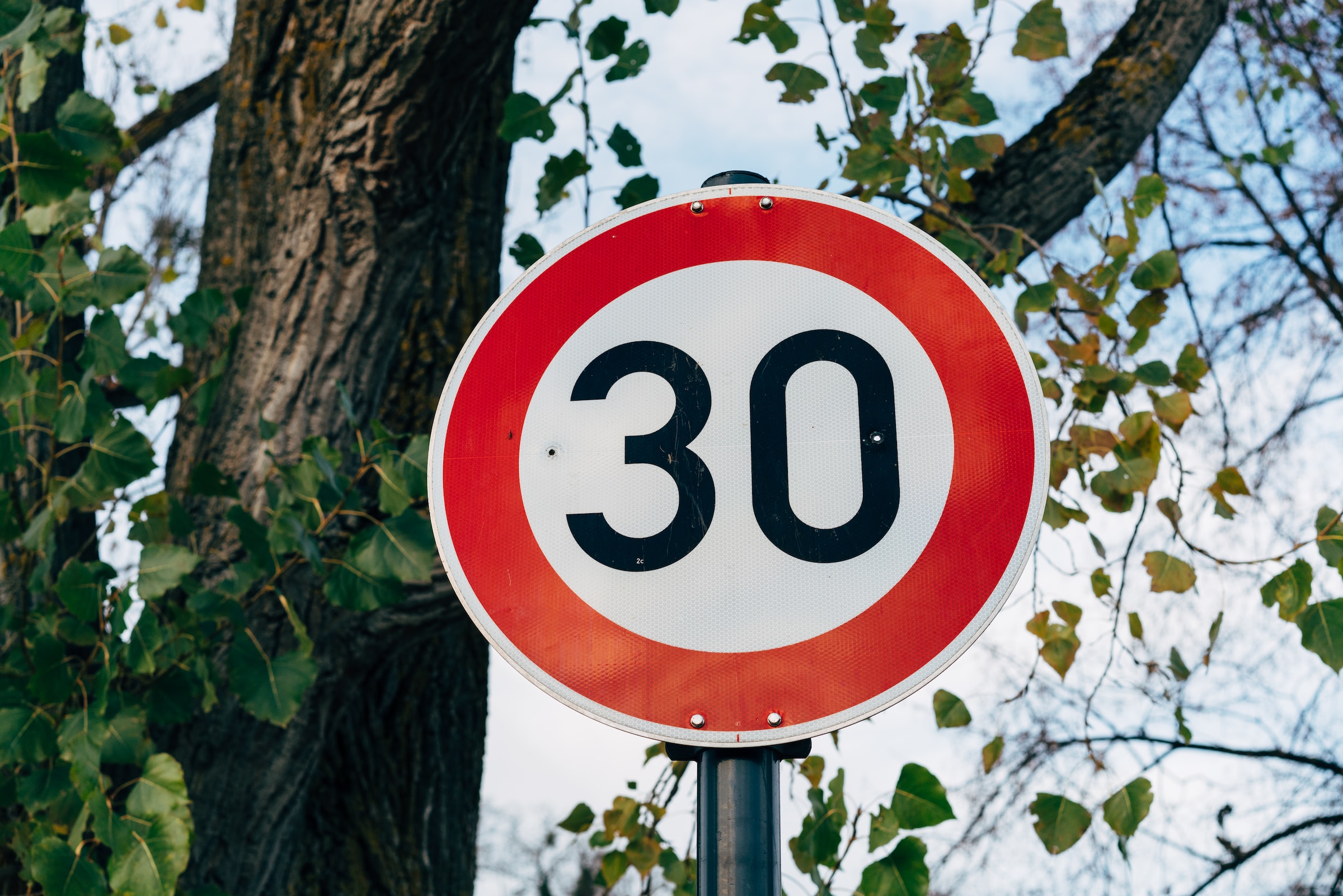>19
Apr

19
Apr
There are between 150,000 and 200,000 speeding fines issued every year, with millions of pounds paid out. Below, we look into what can happen when you’re caught speeding, how much you might have to pay as a fine, and if there are any other options for you.
If you’re caught speeding, the punishment can range anywhere from a verbal warning, to a monetary fine and points on your licence, to being banned from driving. The punishment you receive will depend on a number of factors, such as how dangerously you were driving and how long you have been driving.
In some instances, you may be offered to take a speed awareness course instead of paying a fine or getting points on your licence. You will need to pay around £90 to attend the course and it will not be offered to those that were speeding excessively or have been caught speeding within the last two years.
If you have had your driving licence for less than two years and you build up six or more points on your licence (either due to speeding or other reasons) you will have your licence revoked.
If you are driving severely above the speed limit or are a repeat offender, you will face a larger fine. If you are considered to be driving especially recklessly and dangerously, you could be prosecuted in court and lose your licence.
There is a common acceptance that drivers are able to drive 10% over the speed limit with no consequence. However, according to the law, a driver is breaking the speed limit even if they are just driving 1mph over the limit.
The National Police Chief’s Council (NPCC) does say that police officers can use their discretion and allow for a 10% leeway for drivers. However, this is only guidance and not the law. Police officers can penalise drivers who drive over the speed limit, regardless of how much or how little. It’s also unclear if stationary speed cameras are set up to trigger at just 1mph over the speed limit or more.
The best advice is to not risk speeding any amount and to always stick to the speed limit.
Speeding fines are divided into bands, and how much you pay will depend on how fast over the speed limit you were going. The bands are:
| Speed Limit | Recorded Speed | ||
| Band A | Band B | Band C | |
| 20 mph | 21-30 mph | 31-40 mph | 41 and over |
| 30 mph | 31-40 mph | 41-50 mph | 51 and over |
| 40 mph | 41-55 mph | 56-65 mph | 66 and over |
| 50 mph | 51-65 mph | 66-75 mph | 76 and over |
| 60 mph | 61-80 mph | 81-90 mph | 91 and over |
| 70 mph | 71-90 mph | 91-100 mph | 101 and over |
| Penalty Points / Driving Ban | 3 points | 4-6 points OR driving ban for 1-28 days | 6 points OR driving ban for 1-56 days |
| Fine | 50% of weekly income | 100% of weekly income | 150% of weekly income |
Fines will be capped at £1,000 or £2,500 if you are driving on a motorway. The magistrate has the discretion to give a fine within 25% of the advised percentages of the weekly income. The final fine will be based on your income after tax.
For those who are unemployed, the fine will be based on their current financial circumstances, how much they are paying out already, their savings, and how much they could be earning.
The bands are only provided as guidance. Drivers could be moved up a band even if they were driving the stated amount over the limit for a range of factors, including if they were driving near a school, if they were driving a heavy goods vehicle, and if they have prior convictions.
There are three further bands for the most serious offences. These bands and their fines are:
Factors that could result in these bands include speeding whilst on bail, speeding in severe weather conditions, speeding in high traffic or around pedestrians, and extreme driving over the limit.
Once you receive a speeding ticket, you can either choose to pay it or you can contest it in court. You will usually receive a ticket within 14 days of being caught by a camera, and you will have 28 days to respond. If you don’t respond, you could be taken to court.
The penalty notice should have instructions on how to pay the fine. In England and Wales, you can usually pay the fine on the government website. In Scotland, you can pay your fine on the Courts and Tribunals website.
You may also be able to pay by phone or via post if you are unable to pay online. You should refer to the letter you received for further information.
There are some instances when you can contest the speeding fine. Grounds for disputing a fine include:
You will not be able to contest the speeding fine if you didn’t know what the speed limit was or if there was an emergency.
You should make sure you have a solid case for contesting the fine before you take it to court. If you are unsuccessful, you could face a more severe penalty than the initial speeding fine.
GetCarFinanceHere can find you the best car finance deals to secure your next car. Apply online today to see how much you can borrow.
Thank you for your interest. Please fill out the form below to Request a call back and someone from our team will get in touch shortly.